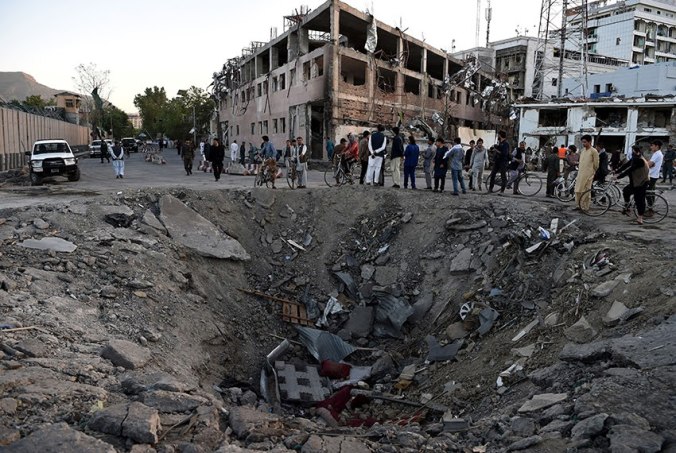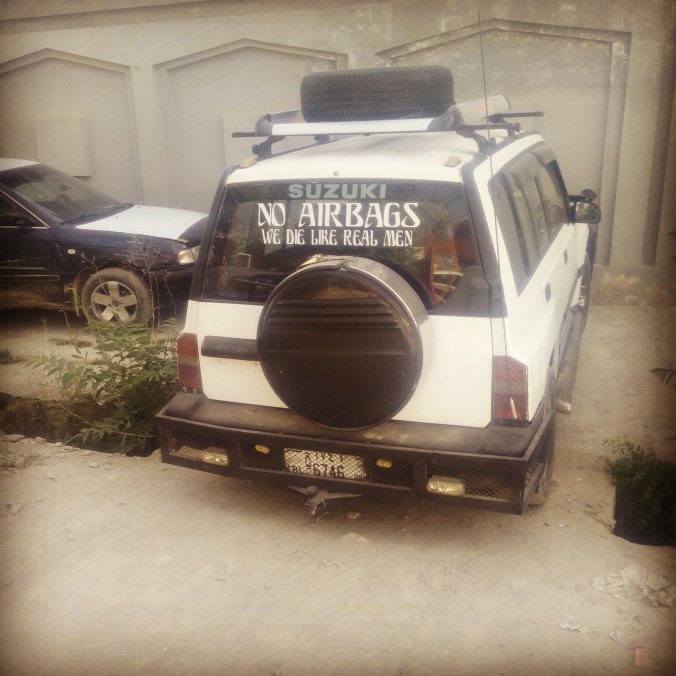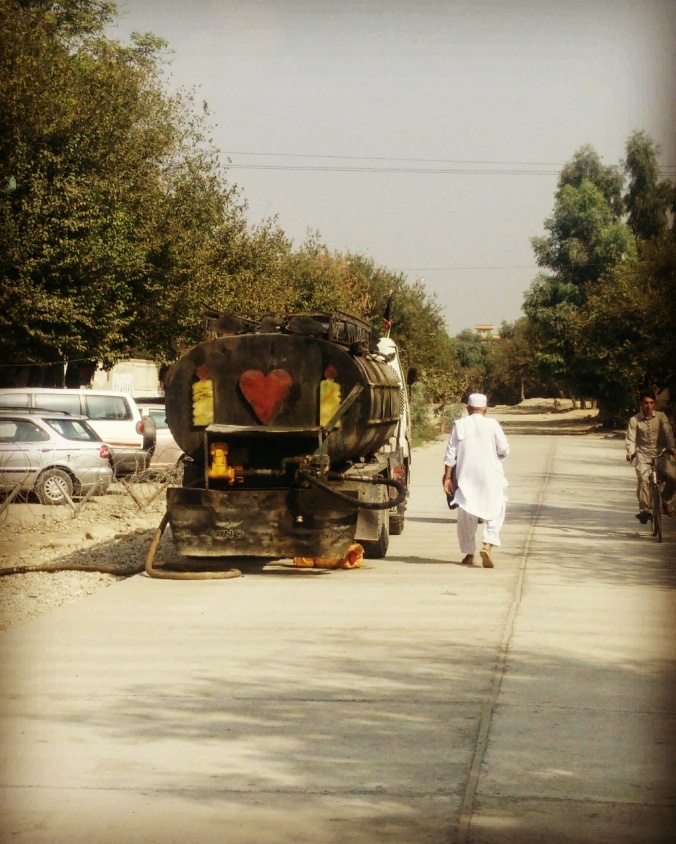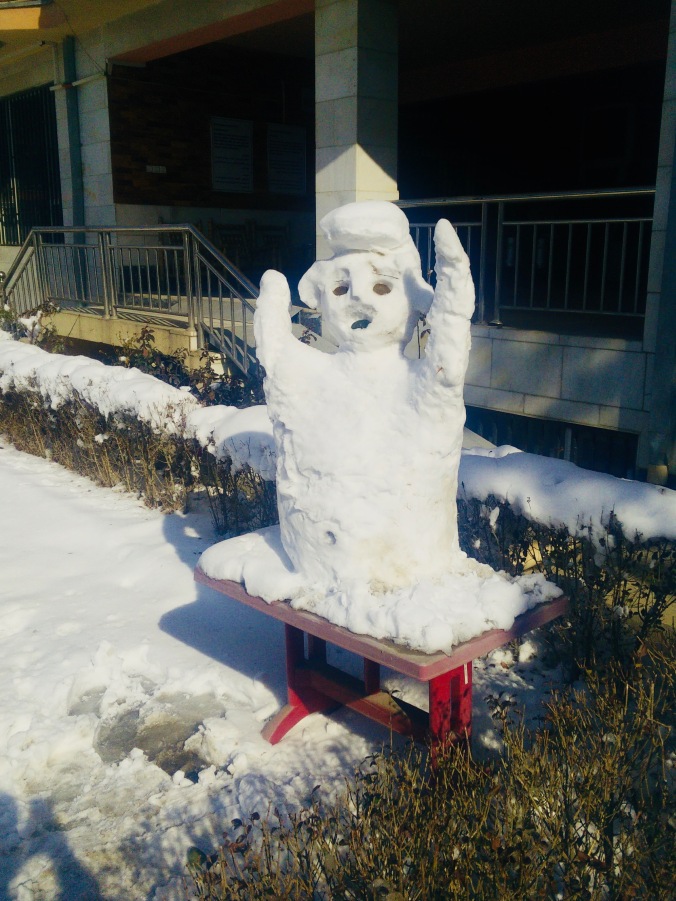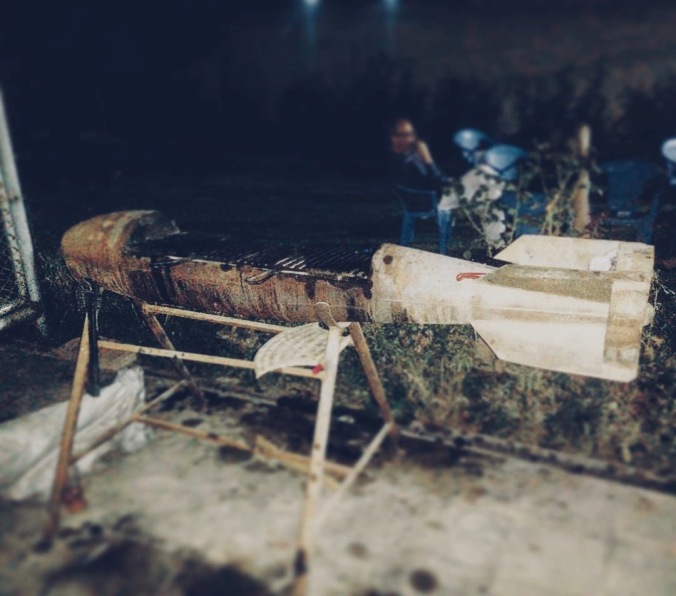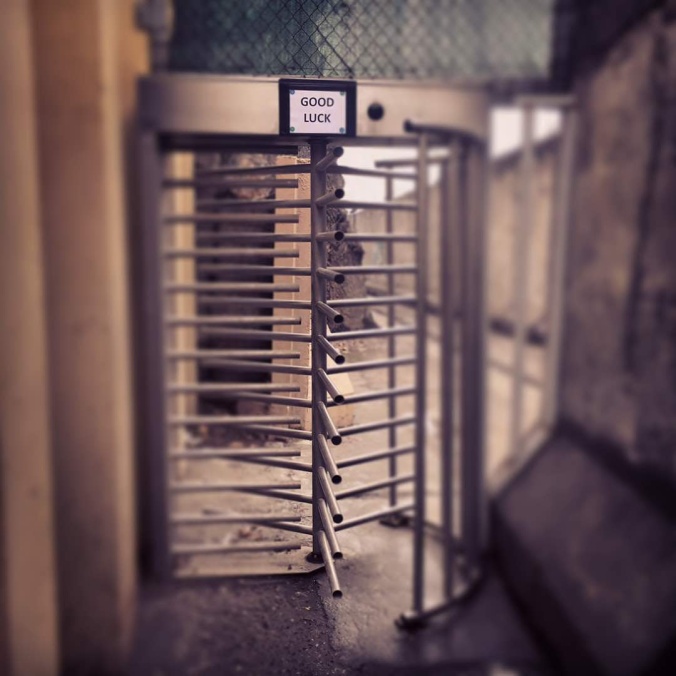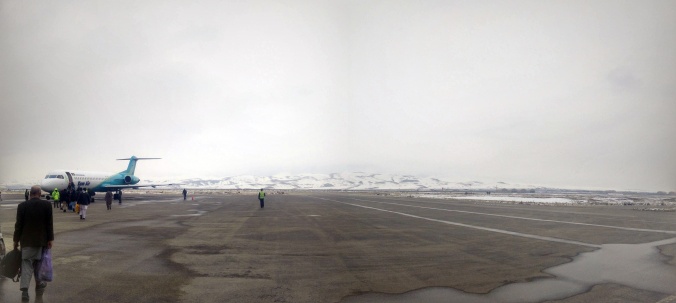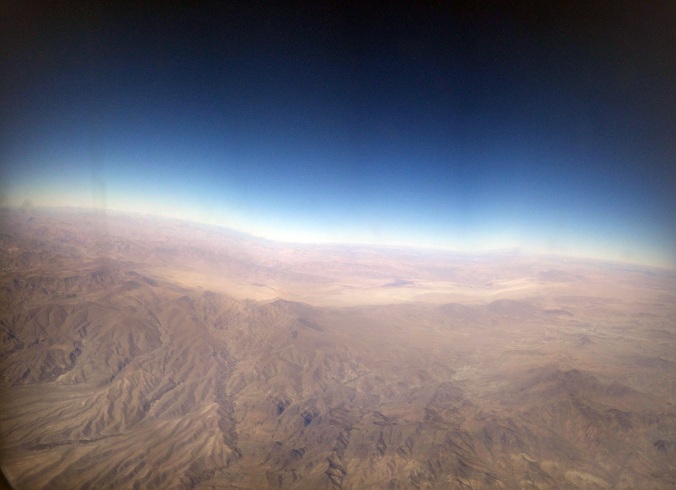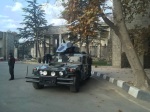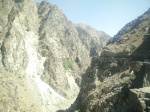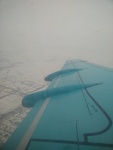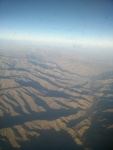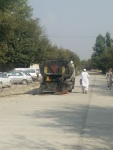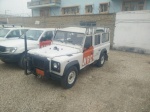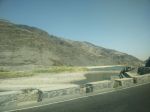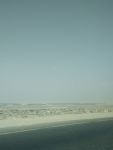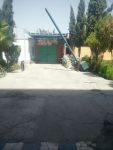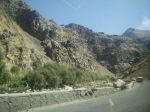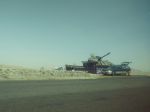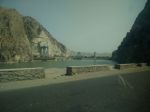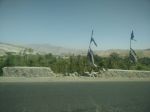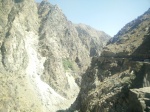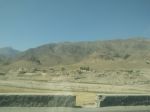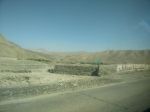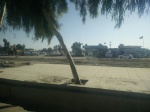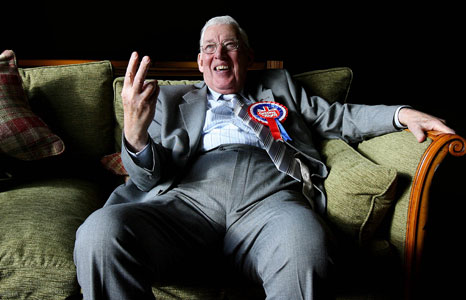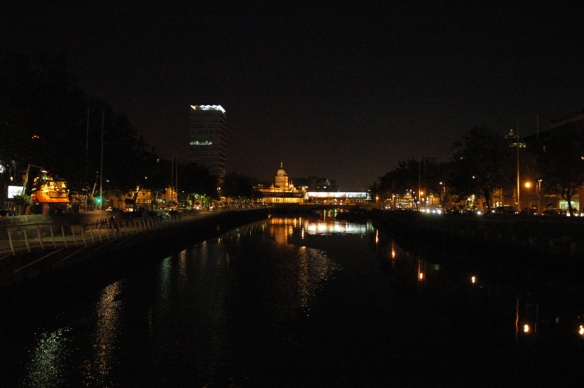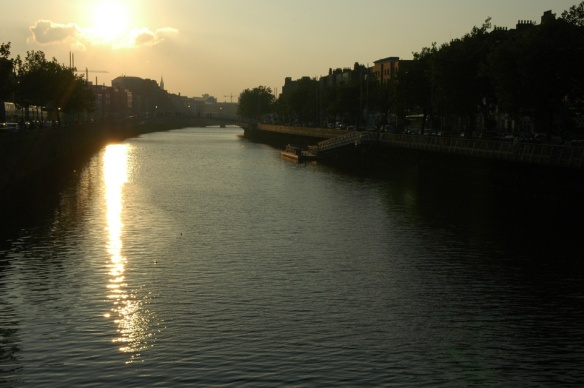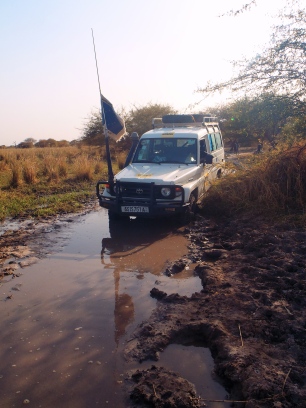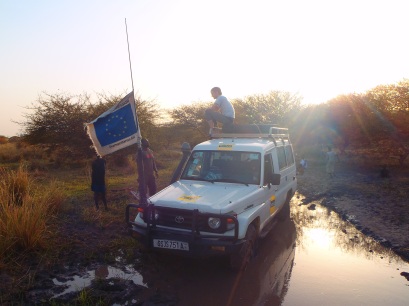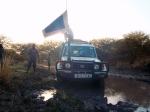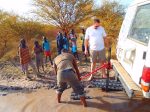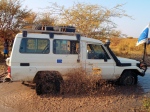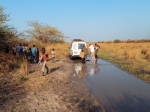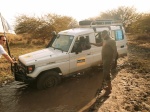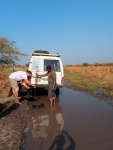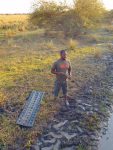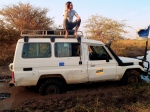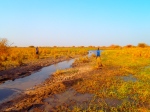When I think of the civil war in South Sudan I remember two distinct awakenings.
The first found me in Dublin, safe but dazed as fighting and house to house executions swept across Juba, brutal and unexpected.
The second found me sheltering inside a shipping container alongside displaced women and children as machine guns crackled without pause and shells exploded overhead.
Between them, these awakenings left a mark that took years to shake.
…..
The conflict began when a long–standing political dispute descended into violence. An armed confrontation between officers loyal to President Salva Kiir and soldiers backing his ex–deputy Riek Machar broke out at an army barracks in Juba. The events leading up to the clash continue to be disputed, but the subsequent exchange of fire tipped the balance from unstable peace to widespread political violence.
As civil war broke I woke to a series of messages, frantic and uncertain. I spent the day in constant communication with people on the ground, trying to piece together what was happening, hoping to determine that my friends and colleagues were safe.
The stories that emerged from those first few days were shocking, at the time. While South Sudan had never shaken the legacy of generations of conflict, previously the violence was localised, limited to pockets of insecurity and intertribal flash points. From the beginning, however, it was clear that this was no discrete military confrontation: civilians were actively targeted from the off. While political at root, the confrontation quickly deteriorated as the split in the army was replicated across sections of the population, resulting in widespread violence and killings largely along tribal and ethnic lines.
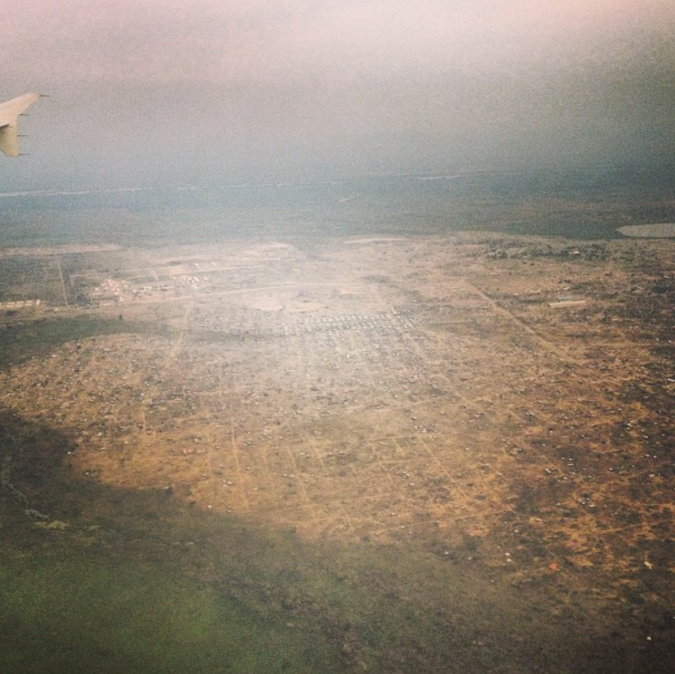
Malakal from air
In quiet moments, friends have since shared their stories with me. Ethnic Nuer – marked with the distinctive scarification of their tribe, parallel lines transversing the forehead – told of seeking shelter in NGO offices, of getting through hostile checkpoints thanks only to their organisational ID cards. Others told of hiding beneath tables in marketplaces as bodies fell around them. Mass graves littered the city.
The organisation I worked for had accommodation – the quaintly named “Red Roof House” – less than a hundred metres from the residence of the ousted former VP, and soon-to-be rebel leader, Riek Machar. My friends spent two days hiding beneath a mattress in an unfinished safe room as government tanks lobbed shells overhead. Although they escaped unharmed, these experienced aid workers got out shaken, having been uncertain whether they would survive.
While not yet apparent, these stories were soon to be replicated at scale as the conflict rapidly spread beyond the confines of Juba.
…..
Given the volatility of the situation, embassies, NGOs and the UN were forced to evacuate all but essential staff. Like most, my organisation retreated to Nairobi, providing what support we could remotely.
On Christmas Day in Ireland I allowed myself a break, tried to be present for a moment. Breathe.
Logging back in on Stephen’s Day I found an email passing on an urgent message from one of my staff. Fighting had broken out in Malakal, Upper Nile state, where one of my teams were based: he and his family had had to seek refuge in the UN ‘POC’ – Protection Of Civilians’ – site. They had no food, no water, no shelter. Marked as he was as a Nuer, he took his young family and walked for days across the swollen floodplains of the Sudd to the relative safety of Jonglei state. They ended up in Yuai, where I was based for a year; an uncomfortable parallel.
That morning my family went for a walk along the beach, working off the excess of the day before; I felt sick and indulgent and powerless. To this day this is the only time I have smoked in front of my mother.
…..
It is striking, with the clarity of hindsight, that we, the international and humanitarian community, were taken by surprise to the extent that we were. The week before the start of it all we had our annual interagency strategy workshop, gathering together senior programme staff from across the country to plan for whatever 2014 might have in store. Despite worrying indicators of political repression and instability, the expectation was a continued steady decline, broadly in line with the trends we had been managing. The day after the workshop, I flew home. Forty eight hours later, South Sudan was at war.
There were outliers, of course. One UN security analyst had taken to carrying his kevlar vest and helmet around Juba with him, serving as effective props to his dire prognostications. He was jokingly termed the “prophet of doom” for his troubles, in grim reference to the allegations being directed at Machar from President Kiir. But it was easy to dismiss such analysis. Little did we know.
…..
7 am. Instantly awake to the sound of automatic fire and shells exploding overhead. This was different to anything we had heard in the days and weeks before – there was no hesitancy here, nothing tentative. This was it.
…..
It is February, and I am back in Malakal, the capital of oil producing and conflict-stricken Upper Nile State. Six weeks before I was here with my boss, preparing for the year to come. We ate greasy food from street vendors and drank lukewarm Tusker after long days. All felt normal in the oppressive dry heat of December.
I have spent the past few weeks in a tent in the ‘POC’. Originally built to provide temporary refuge from fighting for up to 5,000 people, it has swollen to an estimated thirty thousand people. Not having been designed to provide longer-term support the POC has no water or sanitation infrastructure, no shelter, no pre-positioned food stocks / supplies. The camp had self-organised along ethnic lines, and in the cramped conditions tensions were running high.
Previously South Sudan’s second largest city, Malakal was by now largely a ghost town. The tukuls – traditional mud hut homes – were emptied out, the marketplace deserted: the scene was one of pure desolation. Dogs feasted on carcasses both animal and human.
Those that hadn’t fled were scattered between a few sites across the city, taking shelter in churches, mosques and school yards as we ran distributions of basic emergency items – blankets, plastic sheets, jerry cans for collecting water: the bare essentials.
Depending on ethnicity some had moved north towards the Sudan border, some south towards safer locales. We spent days hiring boats and shuttling up and down the Blue Nile, carrying out rapid assessments in an attempt to determine where best to concentrate our scarce resources. Most of us were running skeleton structures, our staff scattered or at risk, our offices and warehouses ransacked and looted. On the river we passed boats being piloted by combatants, NGO logos plastered proudly on the hull.
…..
We knew for some time that conflict was coming. Malakal was a city of strategic and symbolic significance, and by the time I arrived it had already swapped hands twice. Currently under government control, troop movements and military build ups were increasing as the opposition closed in from three sides. An attack was an inevitability – it was just a question of when.
In the meantime, we got on with the work, and spent the evenings trying to forget about what was to come.
The night before the attack fighting broke out in the POC between the different tribal groups. The UN peacekeepers – Nepalese and Indian battalions – sent in tanks to separate the factions. Women and children had broken through the fences and were seeking shelter in the already cramped area where we humanitarians had pitched our tents. We watched the fires spread together. Little did we know that the next night flames would be burning across the city proper.
…..
Nights are cold in Malakal in February. As always, I slept fully dressed, with my belongings and emergency ‘quick run bag’ by my side. Food, water, first aid kit, comms equipment – all ready.
As the guns began their hoarse chatter and the shells provided the dull thud of counterpoint we roused ourselves, and rushed towards the shipping containers that served as our shelter. Surrounded by hesco bastions and with sandbags draped half-heartedly across the roof, they were rudimentary at best. We piled in alongside the women and children displaced the night before, watching the tracers pass overhead, the shells flaring low and heavy.
In Jonglei a year or two before I had my first experience of going to ground. Lying on the floor of the tukul, shooting on all sides, no way out, I determined never again to find myself in such a situation without music. Tunes are key in moments such as these.
In the haste of it all, I left my iPod in my tent. As the whole thing unfolded all I wanted was to listen to Bowie’s ‘Station to Station’. In his absence, Paul Simon rotated in my mind:
The earth was born in a storm
The waters receded, the mountains were formed
“The universe loves a drama,” you know
And ladies and gentlemen this is the show…
The first wave of the assault lasted several hours. I rolled cigarettes with shaking fingers, sharing them with colleagues and laughing a little too loud. I kept note of it all in my journal, writing increasingly spidery as the adrenalin surged and faded.
It was instructive watching the reactions of the children in the shipping container. For some this was clearly not their first experience of conflict or displacement. They sat still, faces lined and lips pursed: they knew what was at stake. The youngest were shaken by the violence that was erupting around us, and cried out in search of comfort. Others still were fortunate enough to be at that age where all is new, and were therefore oblivious, and continued to play and look around with wonder at their new surrounds. Mothers cried and held their children close regardless.
Amidst it all the equine smell of unwashed bodies mixed with the acrid scent of smoke and fear.
…..



- The six images and captions above are courtesy of, and ©, Kate Holt, UNICEF and the Guardian: https://www.theguardian.com/global-development/gallery/2017/jan/17/south-sudan-escalating-violence-life-in-un-camp-malakal-in-pictures





